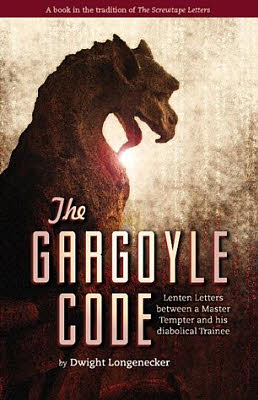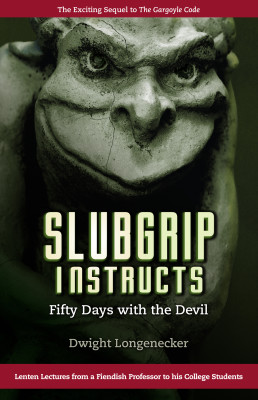Happy New Year everyone! I’m doing fine, a bit tired and a lot busy with regular life, which finds me offline more than usual lately. I’m looking forward to getting back to more blogging in the weeks ahead. Meanwhile, as often happens in winter, I’ve been writing fiction. It’s a hobby, and addictive enough I probably need a National Don’t Write A Novel Month. First drafts are my specialty, thanks.
In a rare bit of online reading today I came across Brandon Watson’s well-timed post at Siris, “Fictional Characters and Political Boundaries.” He talks about the debate among philosophers about the real-ness of fictional characters. On the one hand sometimes I want to slap all the philosophers, and on the other hand, I understand the angst: They are in the job of defining things, and they find themselves unable to define something that they know is, in some way, a real thing.
In what way?
This past weekend I was out of town, and I had to resist the urge to walk up to a guy, a total stranger, to whom I wanted to say, “You remind me of a friend of mine.” The difficulty being that the person he reminded me of was one of my characters. Luckily I’m shy enough it was an easy temptation to overcome, and no innocent bystanders were harmed by an encounter with a crazy-writer person.
A criticism leveled at certain types of bad writers is the error of creating a “character” who isn’t a real person so much as a symbol or a mouthpiece. Bad writing (mine) or bad religion (the reader’s) could cause someone to accuse me of that, but it’s not my besetting literary sin.
On the contrary, I find my character’s lives inform me — not the other way around. They educate me. They do things and think things that open my eyes to reality. Sometimes I sit in church and find I can pray better because I’ve absorbed a bit of one of my character’s spirituality and it makes me better able to love God.
So that’s a thing. The philosophers are bumbling their efforts to describe and define, but they have indeed tripped over a real thing.
***
Father Longenecker has an article up called “Ten Tricks of the Devil.” I particularly like this article because I’m keenly aware of my own wretchedness, and thus it was a great pleasure to read a list of dire spiritual problems that belong to other people for a change. Ha. It’s worth a read, and at the bottom of his post he links to his two Lenten-esque works of fiction, The Gargoyle Code and Slubgrip Instructs, both of which I heartily recommend. Excellent fun. We know it is a fallen world because Fr. L. doesn’t have time to publish more fiction than he does.
***
Meanwhile, in a change of pace for this blog, sometime in the next few days I’ll be running a guest post from Timothy Scott Reeves. His thoughts are prompted in part by a talk this fall by Sister Simone Campbell, during which she related her perception of the miracle of loaves and fishes. Scott’s going to write about completely different things, but for this minute I want to talk more about fiction and reality.
You can read Sr. Simone’s understanding of the miracle in this interview transcript, scroll down to the very bottom. When I first read this account, I was astounded by the blatant sexism of it all:
The — OK. This is “Loaves and Fish.” And remember the story in Matthew — in the Gospel, and they’re out in the countryside, and the Apostles say, “Send them back to town, they’re going to get grumpy.” And Jesus says, “Feed them yourselves.” And the Apostles say, “we don’t have it.” Well, at the end of Matthew’s account, he says, “5,000 men were fed to say nothing of the women and children.” Well, now that made me mad.
[laughter]
So I meditated about that. As you can tell, I have an odd spiritual life. So I thought about it, and I realized they only counted the ones who thought it was a miracle. Because the women had brought food from home. They shared it.
[laughter]
But the guys — I mean, don’t you have this — don’t you experience this all the time? Guys will show up. There’s food on the table. “Wow, food. What a miracle. Isn’t that great? It was like elves produced it.”
Because men are so dumb they don’t even know where their lunch comes from? Really? You said that on the radio?
But I had a second thought on deeper reflection: I think this woman hasn’t spent enough time with men. I married one twenty years ago, I gave birth to another one, and I get to compare notes with other women similarly credentialed. I’ve got an awful lot of lived experience on how men look for food.
And this is the thing: When you go someplace with your husband, or go nowhere at all, he will eventually get hungry. And then he will turn to you, his wife, and he will say: “What’s for lunch?”
This is the very first thing he will do.
You might then direct him to the bounty that can be had in the refrigerator, the lunch box, or the drive-through restaurant, places he is well able to look for food in your absence. But if you are there, he will ask you first.
This might be learned-helplessness, but it can also be respect. One doesn’t just dig through the stash and grab what one wants, lest one accidentally eat what was being saved for someone or sometime else.*
–> A hungry man will never be out someplace with his wife and friends, get hungry, and fail to remember his wife is present and therefore first ask the other men if they brought him lunch. This is not what men do.
The Gospels aren’t fiction, and for that reason alone they pose mysteries. Things happen that we do not understand completely, because our real life is not crafted out of cutesy just-so morality tales.
Sexism is a kind of divorce from reality. Bad fiction, untrue fiction, is a divorce from reality. And hence the struggle to explain what we instinctively know: Good fiction, no matter how fanciful, is always inextricably wed to reality.
*Thus in situations where the common-but-not-exhaustively-universal gender-roles are reversed, the question is asked to the man who is providing the food. My son does most of the cooking at our house lately. So we all ask him, “What’s for dinner?”
Cover art courtesy of DwightLongenecker.com.





















